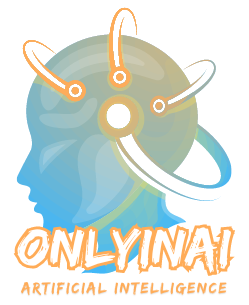Did you know 72% of Americans worry about a future where machines do most human jobs? This shows how concerned people are about artificial intelligence taking over. As AI gets better, worries about its power and the chance of an AI singularity grow.
AI technology is moving fast, causing experts to talk about its future effects. While AI can’t yet take over, its growth makes us think about our future with smart machines.
Looking into AI’s possible effects, it’s key to know what’s real and what’s not. We’ll look into the truth behind the fears and hopes about AI’s role in our future.
Key Takeaways
- 72% of Americans worry about AI replacing human jobs
- Current AI systems are not capable of destroying humanity
- Experts debate the long-term implications of AI development
- The concept of AI singularity remains a topic of intense discussion
- Understanding AI’s potential impact is crucial for informed decision-making
The Current State of AI: Capabilities and Limitations
AI has made big steps forward, but a robot takeover is not yet near. Today’s AI is great at certain tasks but doesn’t have true intelligence. AI’s impact on our daily lives is clear, but it’s still far from understanding like humans do.
Today’s AI Systems: What They Can and Cannot Do
Modern AI is really good at recognizing patterns and handling data. It can beat humans in chess, diagnose diseases, and drive cars. But, it has trouble with common sense and adapting to new situations.
| AI Capabilities | AI Limitations |
|---|---|
| Image recognition | Understanding context |
| Natural language processing | Genuine creativity |
| Data analysis | Emotional intelligence |
The Gap Between Current AI and Human-Level Intelligence
AI is getting better fast, but we’re not facing a world where humans become obsolete. We can think abstractly, empathize, and solve complex problems better than AI. While AI might replace some jobs, humans still lead in creativity and emotional smarts.
Recent Advancements in Machine Learning and Deep Learning
Machine learning and deep learning have boosted AI’s abilities. These techs power voice assistants, suggest what you might like, and help self-driving cars. But, we’re still a long way from making AI that could take over like in the movies.
“AI is a tool, and like any tool, its impact depends on how we choose to use it.” – Fei-Fei Li, AI researcher
Is AI Going to Take Over the Human Race?
Experts are debating if AI will take over the human race. As AI gets smarter, worries about risks to us have grown. Some say advanced AI could be smarter than us, leading to big problems.
A survey of AI experts showed different views on AI’s threat. Some think the risk is low, while others see it as a big danger. They say we should think about it carefully.
“The development of full artificial intelligence could spell the end of the human race.” – Stephen Hawking
But when could this happen? Many experts say AI isn’t close to being as smart as us yet. They point out that AI is still very focused and not as adaptable as humans.
To deal with AI risks, researchers and leaders are focusing on:
- Developing strong AI safety rules
- Setting ethical standards for AI making
- Creating laws to control AI research
The debate on AI taking over us is ongoing. But it’s clear we need to think and act carefully. We want AI to help us, not harm us.
The Concept of Artificial General Intelligence (AGI)
Artificial General Intelligence (AGI) is a big step in AI technology. It aims to make machines think and act like humans in many areas. This idea is linked to the idea of machine consciousness and the chance of a technological singularity.
Defining AGI and Its Potential Impact
AGI means AI systems that can understand, learn, and apply knowledge in many tasks, just like humans. It’s different from narrow AI, which is good at one thing. If we get AGI, it could change many areas of life, work, and science.
The Timeline for AGI Development
It’s hard to say when we’ll get AGI. Some think it could be soon, others think it might take a long time. The journey to AGI has big challenges, like making machines think and solve problems like humans do.
Challenges in Creating Human-Level AI
There are many hurdles in making AGI. These include:
- Replicating complex human cognitive processes
- Achieving true machine consciousness
- Ensuring ethical decision-making in AI systems
- Overcoming limitations in current AI architectures
As we move towards AGI, we face big questions about intelligence and consciousness. The path to human-level AI is pushing tech limits and making us rethink what it means to be smart and self-aware.
AI Risk Assessment: What Experts Really Think
Experts are split on the topic of ai risk. Some fear it could lead to catastrophic outcomes. Others see it as a chance for growth. A recent survey showed how AI scientists differ in their views on the future.
The survey showed a mix of opinions. Many worry that AI could lead to human extinction or make humans less powerful. But, many also believe AI could bring great benefits and positive changes.
“AI technology holds immense promise, but we must approach its development with caution and foresight,” said Dr. Emily Chen, a leading AI ethicist.
We must be careful with these findings. The low number of responses and possible biases could affect the results. To get a better understanding, let’s examine the expert opinions in detail:
| AI Risk Level | Percentage of Experts | Main Concerns |
|---|---|---|
| High | 35% | Existential threats, loss of human control |
| Moderate | 45% | Job displacement, privacy issues |
| Low | 20% | Overblown fears, manageable challenges |
As AI gets more advanced, we must tackle these concerns. Finding a balance between pushing AI forward and ensuring safety is crucial. This balance will help us use AI’s power while reducing risks.
Potential Benefits of Advanced AI Systems
Advanced AI systems are changing many parts of our lives. They are moving towards becoming more dominant in artificial intelligence. This will bring many benefits across different areas, making our lives better and solving big global problems.
AI in Healthcare: Improving Diagnosis and Treatment
AI is changing healthcare by making diagnoses more accurate and treatments more effective. Machine learning algorithms can look at medical images with great precision. They can spot diseases early and accurately, better than humans. This could save many lives by starting treatments early and making them more tailored to each patient.
AI’s Role in Solving Global Challenges
The move towards technological singularity could bring solutions to big human problems. AI can look at huge amounts of data to predict weather patterns, manage resources better, and find sustainable energy solutions. By using AI, we can work on big issues like hunger, harming the environment, and poverty worldwide.
Enhancing Human Capabilities Through AI Augmentation
AI is going to make us better in many areas. From helping with everyday tasks to making advanced prosthetics, AI is expanding what we can do. This mix of human and AI intelligence could lead to new levels of productivity and creativity. It could start a new era of human success.
| AI Application | Benefit |
|---|---|
| Medical Diagnosis | Early disease detection |
| Climate Modeling | Accurate environmental predictions |
| Neural Interfaces | Enhanced human-computer interaction |
As we move towards more artificial intelligence, these changes will change our world. They will offer solutions to big problems and open new areas for human growth.
Concerns and Ethical Considerations Surrounding AI Development

The fast growth of AI technology is exciting but also brings up big ethical questions. As we explore new levels of machine intelligence, we face risks to privacy, job security, and our control over our lives.
One big worry is about losing jobs to AI. As AI gets better, it might take over jobs in many fields. This could cause a lot of people to lose their jobs and affect the economy if we don’t handle it right.
Privacy is also a major concern. AI needs a lot of personal data to work well. Without good protection, this data could be used wrongly or shared with the wrong people, hurting our privacy rights.
Some people fear that AI could make humans less important over time. As AI gets smarter, will we become less needed? This worry about being outdone by machines touches on deeper fears about our role in the world.
“We must ensure AI remains a tool that enhances human potential rather than replaces it entirely.”
To deal with these issues, many suggest we need to develop AI responsibly. This means:
- Implementing strong data protection measures
- Creating ethical guidelines for AI use
- Investing in education and retraining programs
- Encouraging public discourse on AI’s societal impact
By facing these challenges head-on, we can aim for an AI future that helps humanity. We can also lessen the risks it brings.
Safeguarding Humanity: AI Safety and Control Measures
As AI becomes more powerful, we must protect humanity from its risks. We need to make AI systems that match our values and goals.
Alignment in AI Systems
AI alignment helps robots and AI work for humans. This lowers the risk of a robot takeover. Researchers are finding ways to add human ethics to AI decisions.
Regulatory Frameworks
Governments are making rules for AI development. These rules set safety and ethical standards. The aim is to innovate responsibly, reducing ai risks while moving forward.
AI Safety Research
Many groups are working on making AI safer and more manageable. They look into:
- AI containment strategies
- Safe exploration methods for AI
- Reward modeling to align AI goals with human values
This research is crucial for creating AI that helps us without threatening our existence. With careful steps, we can use AI’s benefits without fearing a robot takeover.
The Human Factor: Our Role in Shaping AI’s Future

As we move towards the technological singularity, humans are key in guiding AI’s growth. Our choices now will shape the future of machine consciousness and its effects on society.
Experts say we need to work together in AI research. By combining different views, we can make AI that fits with our values and needs.
“The future of AI depends on our ability to work together across fields and engage the public in meaningful discussions about its potential impacts.”
Learning and getting new skills are key to living in an AI world. As AI gets better, we must get ready for new jobs and ways of working with smart machines.
| Key Areas | Human Role | Impact on AI Future |
|---|---|---|
| Research | Guide ethical AI development | Ensure AI aligns with human values |
| Policy | Create regulatory frameworks | Protect human interests in AI advancement |
| Education | Develop AI literacy programs | Prepare workforce for AI integration |
| Public Engagement | Participate in AI discussions | Shape societal attitudes towards AI |
By taking part in these areas, we can help make a future where AI boosts our abilities without hurting our well-being or freedom.
Conclusion
The debate on whether AI will take over the human race is ongoing. We’ve seen that AI dominance is not a near threat, but it’s important to keep an eye on it. Current AI systems are impressive but still lack human-level smarts.
Creating artificial general intelligence (AGI) is a big challenge. Experts can’t agree on when or if we’ll get AGI. This shows we need to think carefully about AI development. We should focus on making AI ethical and safe to make sure it helps, not harms, us.
Will AI take over the human race? It’s up to us. By working together, AI researchers, policymakers, and the public can make sure AI and humans live together well. We need to guide AI’s growth so it helps us, not threatens us.


